Palermo faith: Seeing Sicily’s capital through a migrant’s eyes
‘I love it here. I felt welcome as soon as I arrived,’ Alagie Malick Ceesay tells Jessica Vincent
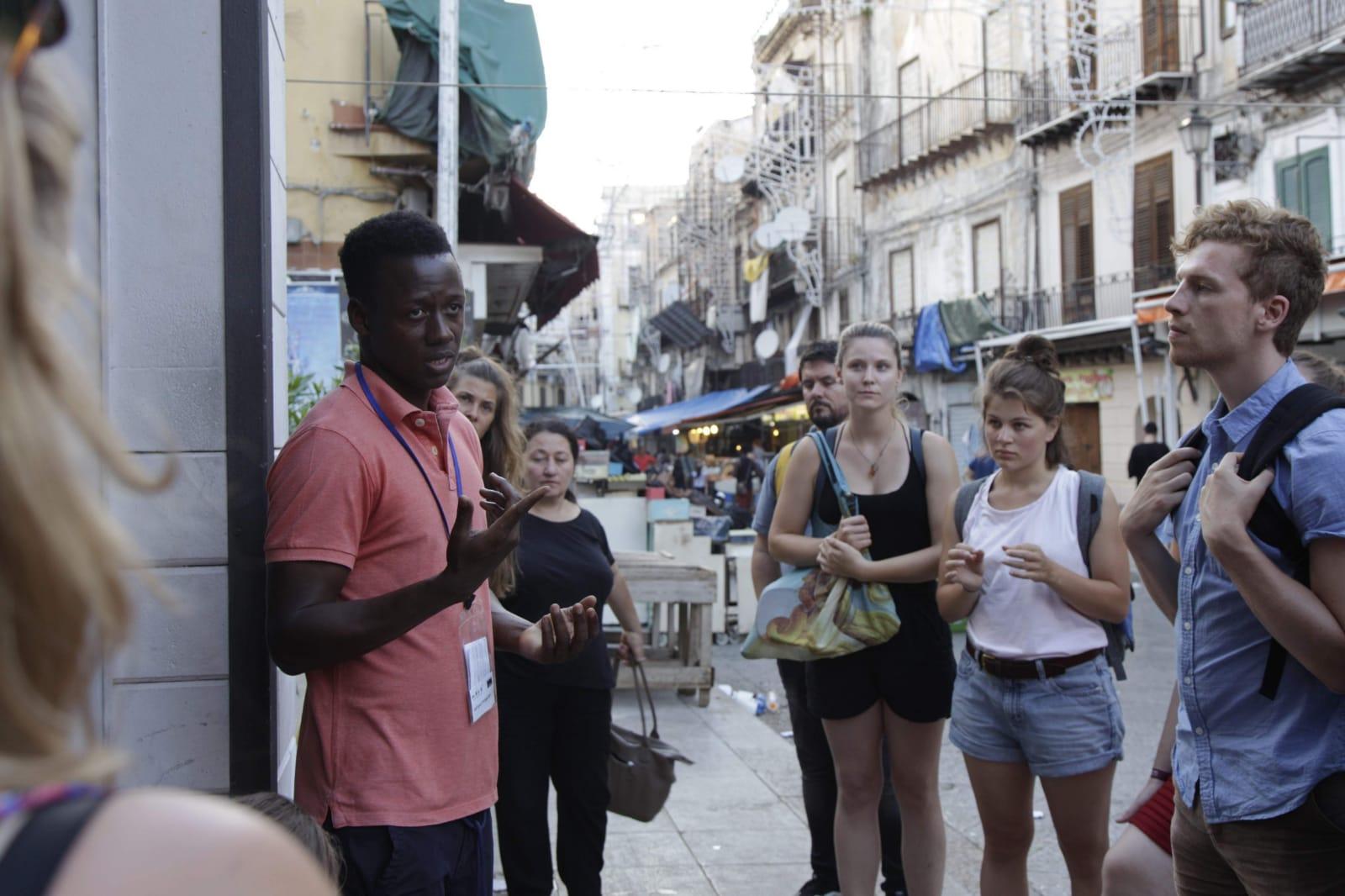
In this part of the market, you can buy anything you like,” says my 19-year-old Gambian guide, Alagie Malick Ceesay, as we navigate our way through Palermo’s oldest market. “But many things here have been stolen, of course,” he adds without breaking his step.
The first time I visited Palermo, Sicily, I was guided past the Norman tombs of the Cattedrale, told of the rise and fall of Byzantine and Roman rule, and, to finish, I sampled the city’s best arancini, heavenly fried rice balls oozing with slow-cooked beef ragu.
As with most European city tours that I’d experienced up until now, our guide had shown us a wart-free Palermo, one made up exclusively of expertly chiselled monuments and decadent architecture built for kings, queens, and emperors. But a “Through My Eyes” tour with Moltivolti – a not-for-profit organisation that helps African and Bangladeshi migrants build a crime-free life in Palermo – is a little different from your typical walking tour.
“Our tours aren’t about sightseeing,” says Melania Memory Mutanuka, a director at Moltivolti and tour coordinator. “They’re about getting to know people’s stories.”
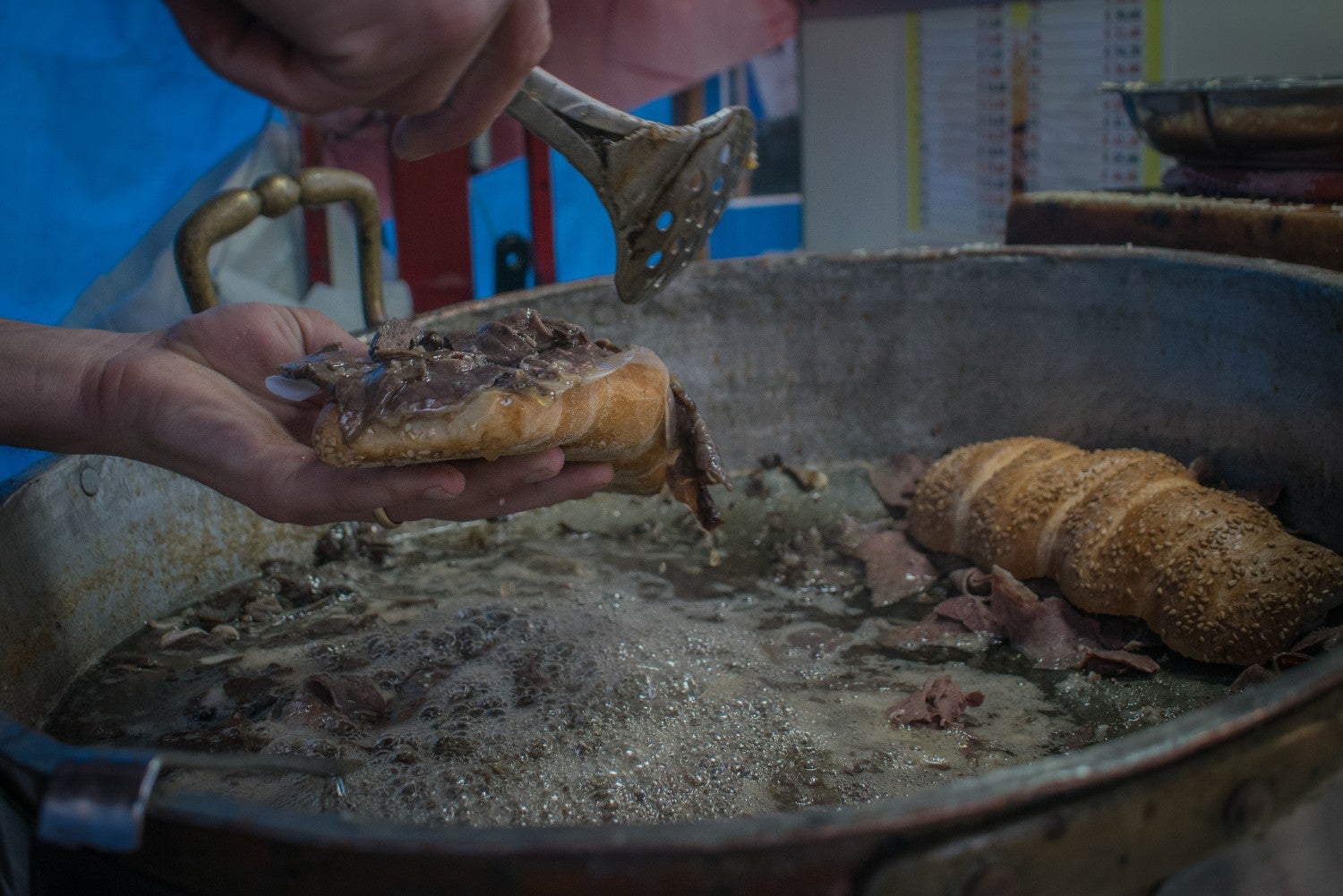
The location of our mid-morning walking tour is Mercato di Ballaro, a centuries-old market where Sicilian street vendors sell pani ca meusa (spleen sandwiches) alongside African restaurants and Bangladeshi spice shops.
Against a backdrop of crumbling church facades and red plastic tarp, olives the size of apples glisten in wooden boxes, golden chickpea fritters sizzle with fury inside vats of oil, and severed tuna heads look disapprovingly from their ice baths, eyes bulging.
“Ballaro is Palermo’s oldest and most multicultural market,” says Alagie Malick as we pass a baker’s stand, sending wafts of fried dough and sweet ricotta into the air. “It’s the one place in Palermo where people from different cultures live and work as friends. It’s a home for everyone.”
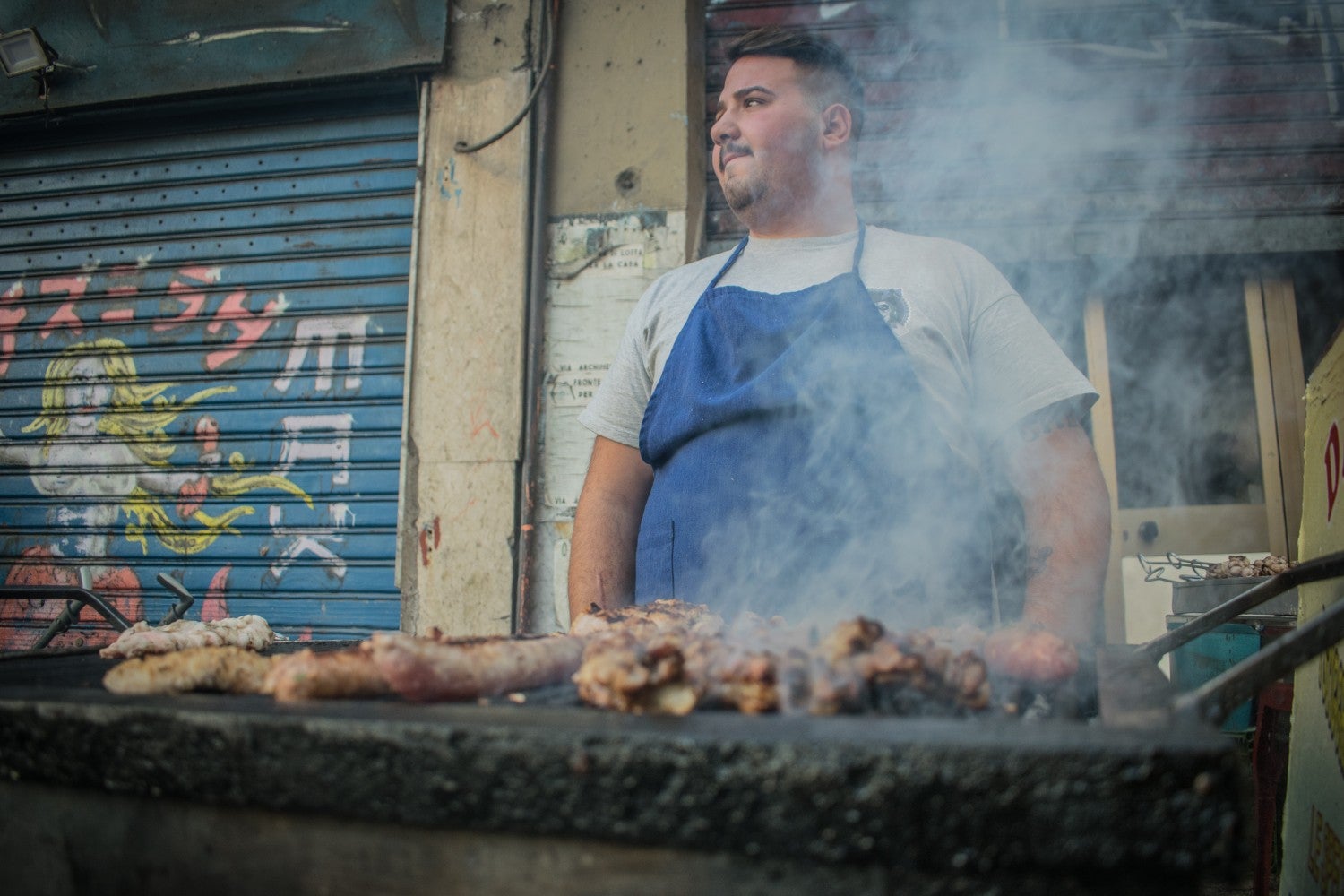
We zig-zag our way through Ballaro’s souk-like alleyways to reach the outermost edges of the market. As fennel sausages and cow’s innards give way to a buffet of worn shoes, broken suitcases, and Walkmans from the 1980s, Alagie Malick tells me why this historic market attracts so many migrants.
“Before the anti-mafia movement, the mafioso had a very strong presence in Ballaro, so many Sicilians left. This drove rent down and migrants came,” says Alagie Malick, who has lived in the neighbourhood for almost three years. “I love it here. I felt welcome as soon as I arrived – it’s like having a family.”
Dodging speeding mopeds and bloody puddles dancing with prawn heads, Alagie Malick leads me to his favourite African restaurant. “The food here is really good, like at home,” he says with a smile as he points to a bowl of okra stew on a diner’s table. Without taking his eyes off the steaming red-orange broth, my guide tells me of his efforts to reach Sicily, a journey he was forced to make due to extreme poverty in his own country and an unstable family home.
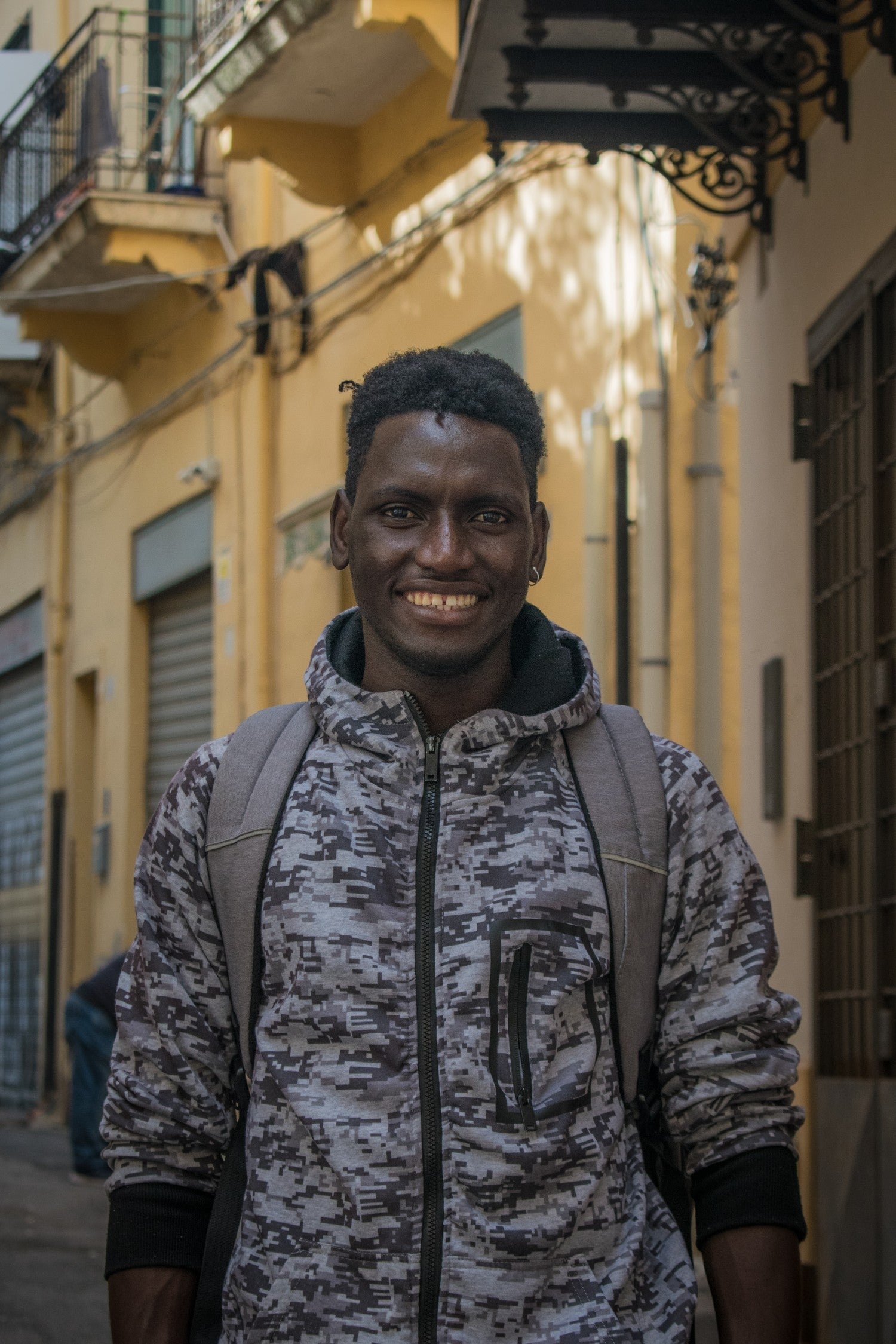
“It took me four months to get to Palermo. I had to go via Libya, and conditions there were very bad,” he says. “They [the smugglers] beat me. They stole from me. They kept me captive without food for days, but I did not turn back. I was told life would be easier in Europe, so I had to go on.”
Life for the 19-year-old, however, has been anything but easy since arriving in Palermo. With few qualifications and a growing stigma around migrants, finding honest work can be hard, and many end up turning to the city’s notorious mafia for employment. “We’re an easy target for the mafia because they know we are vulnerable,” Alagie Malick says. “But I am one of the lucky ones. Thanks to Moltivolti, I recently got to go back to school.”
In addition to walking tours, Moltivolti runs a migrant-staffed restaurant and co-working space, profits from which go directly towards helping young migrants get the qualifications they need to find legal and well-paying jobs in the city. “People often fear migrants,” says Moltivolti co-director Melania Memory, “but we think they have a lot to contribute to society.”
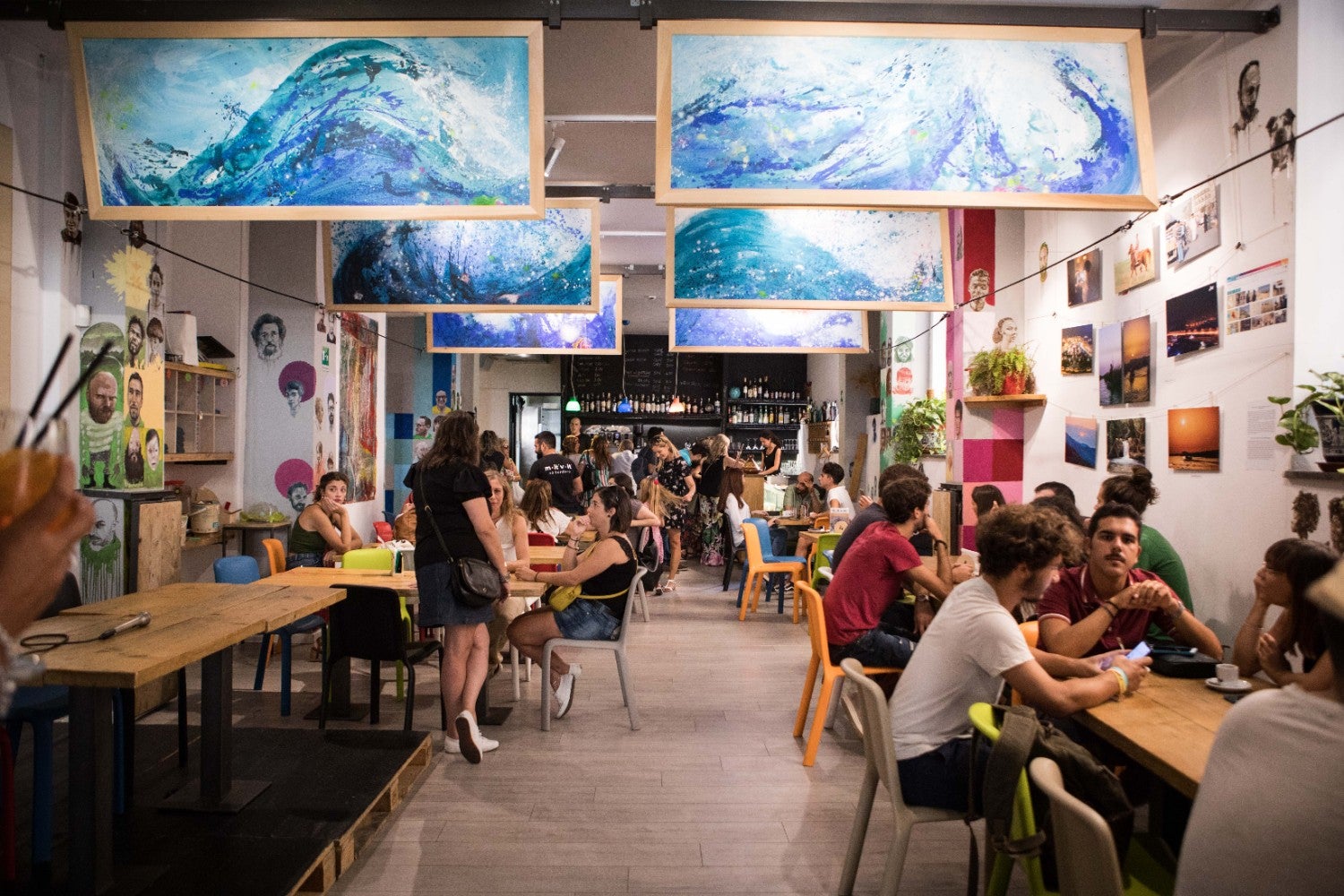
Despite the challenges, Alagie Malick is optimistic for the future. “I have lots of dreams,” he says. “I love making music and taking photographs. I’d also like to be a professional tour guide in Africa one day.”
Thanks to the support of organisations like Moltivolti, Alagie Malick – a teen who risked his life for a brighter future in Europe – may just achieve his dreams one day. For now, though, he has his eyes, and his stomach, set on only one thing: “Would you like to try a bowl of okra?” he says with a wide grin. I thought he’d never ask.
Travel essentials
Direct flights to Palermo are available with easyJet and Ryanair, with fares starting from £55.
Moltivolti currently runs migrant-led tours in Mercato di Ballaro at weekends and selected weekdays (depending on demand). Reservations can be made via their website or through Airbnb Experiences. All proceeds go directly towards helping migrants build a brighter future in Palermo.
Join our commenting forum
Join thought-provoking conversations, follow other Independent readers and see their replies
0Comments